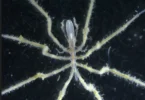Whales have long captured our fascination with their immense size and graceful movements. But beyond their majestic presence, whales play a critical role in maintaining the health of our oceans and, surprisingly, the stability of our planet’s climate.
As guardians of ocean ecosystems, these gentle giants contribute to nutrient cycling, carbon regulation, and the survival of countless marine species. Understanding how whales protect ocean health gives us a deeper appreciation of their importance and why protecting them is essential for our own survival.
Whale Poop: Nature’s Fertilizer
One of the most surprising ways whales support ocean ecosystems is through their waste. Whale poop is rich in essential nutrients like iron and nitrogen, which promote the growth of phytoplankton—tiny, plant-like organisms at the base of the marine food chain.

Phytoplankton do more than just feed small fish and krill—they play a massive role in absorbing carbon dioxide (CO₂) from the atmosphere. Through photosynthesis, phytoplankton capture CO₂ and produce over 50% of the Earth’s oxygen.
Studies have shown that increased whale populations could significantly boost phytoplankton levels, potentially capturing millions of tons of CO₂ annually and helping combat climate change.
The Whale Pump: Bringing Life to the Surface
Whales contribute to ocean health through a process called the whale pump. When whales dive deep to feed and then surface to breathe, they transport nutrients from the ocean floor back to the surface.
This process fertilizes surface waters, creating the perfect conditions for phytoplankton growth and supporting the entire marine food web. More phytoplankton means more food for small fish, krill, and eventually larger predators, creating a thriving ecosystem.
Whale Carcasses: Life After Death
Even after death, whales continue to give back to the ocean. When a whale dies and its body sinks to the ocean floor, it creates a whale fall—a unique ecosystem that can support marine life for decades.
- Scavengers like sharks and hagfish feed on the flesh.
- Bone-eating worms (Osedax) break down the bones, releasing nutrients.
- Microorganisms flourish, forming the foundation for a deep-sea food chain.
A single whale fall can support over 100 species and provide a stable source of food in an otherwise barren environment.
Whales as Apex Predators
Not all whales are gentle giants—some, like the killer whale, are top predators in the ocean. Killer whales, or orcas, play a key role in balancing marine ecosystems by controlling prey populations and maintaining species diversity.
Learn more about these incredible creatures in The Majestic Killer Whale: Ocean’s Apex Predator and Social Genius.
Whales and Climate Regulation
Phytoplankton, supported by whale activity, are critical for the Earth’s climate. They absorb vast amounts of CO₂ from the atmosphere, helping to reduce the greenhouse effect and slow down global warming.
According to the International Monetary Fund (IMF), a single great whale can capture an average of 33 tons of CO₂ over its lifetime. When whales die, the carbon stored in their bodies sinks to the ocean floor, keeping it out of the atmosphere for centuries.
For more insights into how whales help regulate the climate, check out this detailed report by WWF.
Why Protecting Whales Matters
Despite their vital role, whale populations are under threat from:
- Commercial whaling – Countries like Japan and Norway still allow whale hunting.
- Ship strikes – Collisions with large vessels are a leading cause of whale fatalities.
- Noise pollution – Increased shipping traffic disrupts whale communication and navigation.
- Climate change – Rising ocean temperatures and acidification threaten whale habitats and food sources.
Protecting whales isn’t just about saving a species—it’s about preserving the entire marine ecosystem and protecting our planet’s ability to regulate climate and support life.
Whales are not just symbols of the ocean, they are its protectors. By supporting phytoplankton growth, cycling nutrients, and regulating carbon levels, whales play a direct role in the health of marine ecosystems and the stability of our climate.
Protecting whales means protecting the future of our oceans and securing a healthier planet for generations to come.








